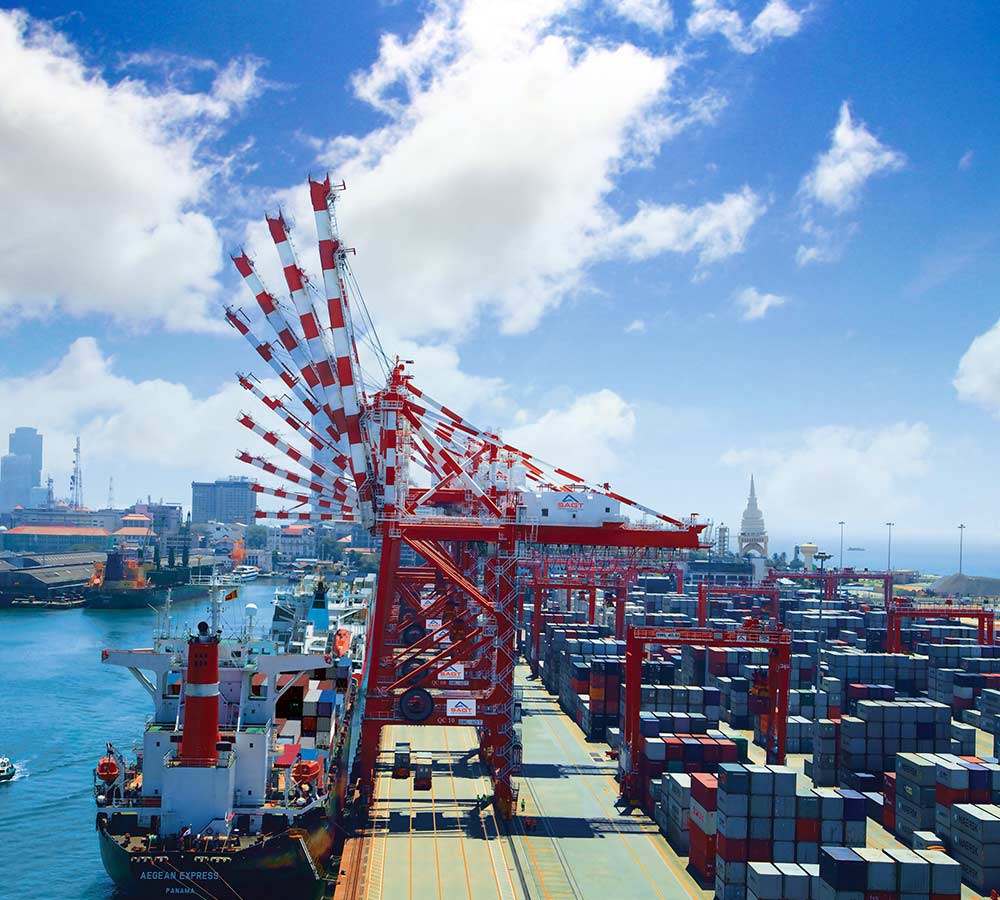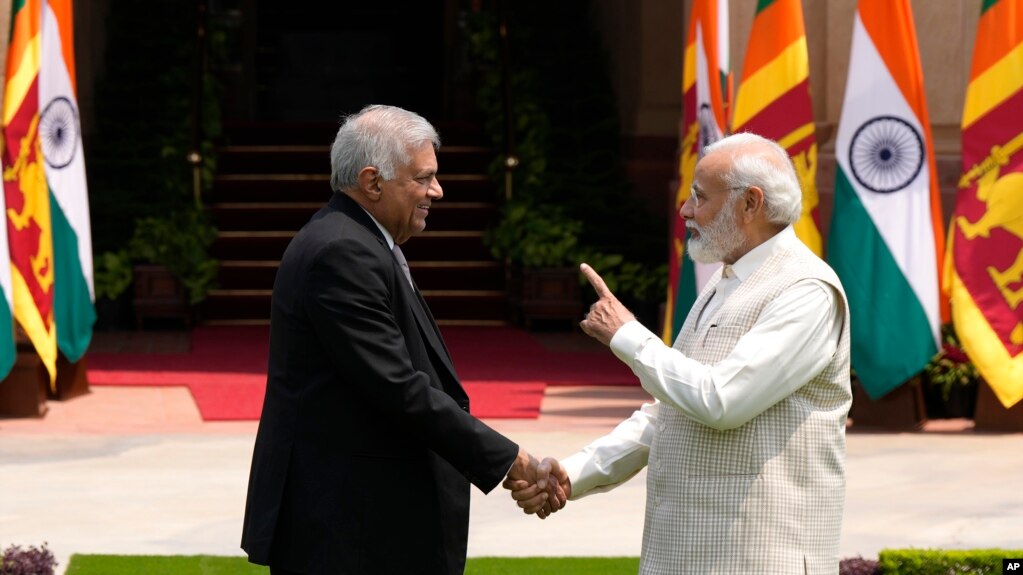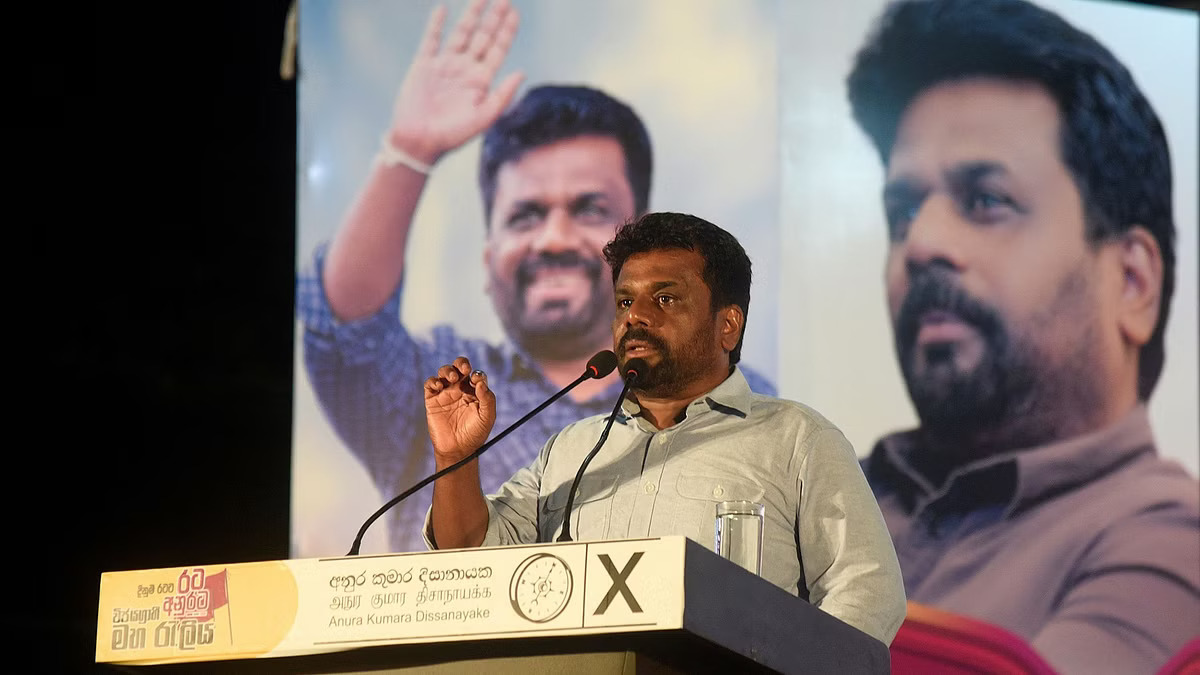
Implications for India and China
Introduction: Dissanayake's Presidency and Political Evolution
Anura Kumara Dissanayake, a Marxist-Leninist politician with deep roots in Sri Lanka’s Janatha Vimukthi Peramuna (JVP), was inaugurated as Sri Lanka’s 10th president on September 23, 2024. His leadership marks a significant Dissanayake SriLanka political shift, as he has risen from his involvement in student politics to serving as the leader of the JVP since 2014. Dissanayake has garnered a reputation for advocating socialist reforms and opposing corruption. However, his presidency extends beyond domestic political rhetoric, introducing new geopolitical challenges, particularly regarding Sri Lanka’s strategic relations with China and India.
Deepening Ties with China: Geopolitical Ramifications
Dissanayake’s Marxist-Leninist government is seen as a natural ally to China’s broader ambitions in the Indian Ocean region. With substantial Chinese investments already entrenched in Sri Lanka, notably through projects like the Hambantota Port, Beijing has long eyed the island nation as a critical outpost for its Belt and Road Initiative (BRI). Under Dissanayake’s leadership, it is feared that Sri Lanka may become even more of a strategic foothold for China, which could lead to the establishment of a military or naval base. Such developments pose significant threats to India’s security, particularly if a naval base capable of launching ship-borne missiles is established.

Image credits: Maritime Gateway
China’s influence in Sri Lanka has been a point of contention for years, especially with India wary of the growing Chinese footprint so close to its southern borders. The use of Sri Lankan ports for Chinese naval vessels, as well as long-term leasing of critical infrastructure to Chinese firms, has raised alarm in New Delhi about China’s increasing control over maritime trade routes.
Balancing Relations with India: A Complex Diplomatic Challenge
Despite the close ties with China, Dissanayake has indicated a willingness to maintain strong relations with India. In fact, during his presidential campaign, he assured that Sri Lanka’s territory would not be used in any way that could threaten India’s security. This sentiment reflects a broader understanding that while China provides much-needed financial and infrastructural support, Sri Lanka cannot afford to alienate India, especially in the context of India’s significant economic aid and its role in Sri Lanka’s post-2022 economic recovery.

Image credits: VOA News
India has provided over $4.5 billion in humanitarian and economic aid to Sri Lanka, helping it navigate its severe financial crisis. Moreover, diplomatic efforts between the two nations remain strong, as evidenced by Dissanayake’s meeting with Indian leaders, including External Affairs Minister S. Jaishankar and National Security Adviser Ajit Doval, earlier in 2024. These discussions focused on economic recovery, anti-corruption measures, and ensuring that Chinese projects in Sri Lanka adhere to transparency standards.
Economic Challenges: Navigating Sri Lanka’s Debt Crisis
Sri Lanka’s economic landscape remains fragile, with high inflation, debt, and unemployment persisting as significant challenges for Dissanayake’s administration. China’s financial involvement in Sri Lanka, often through large loans for infrastructure projects, has added to the nation’s debt burden. Critics have labeled this as a “debt trap,” where Chinese-funded projects, like the Colombo Port City and Hambantota, are not yielding sufficient economic returns to justify the financial liabilities incurred.
Dissanayake’s leadership will be under pressure to address the nation’s mounting debt while avoiding over-reliance on Chinese loans. At the same time, he must find ways to stimulate economic growth and reform the country’s fiscal policies to attract foreign investment without compromising Sri Lanka’s sovereignty.

Strategic Implications for the Region
The election of Dissanayake, while marking a shift towards Marxist-Leninist governance, presents Sri Lanka with both opportunities and challenges. For India, the concern lies in Sri Lanka’s growing ties with China, which could escalate into a more militarized presence near Indian waters. However, Dissanayake’s promises to maintain positive relations with India offer a glimmer of hope for regional stability.
Sri Lanka’s economic recovery depends on a delicate balancing act between leveraging Chinese investments for infrastructure and maintaining strong diplomatic and economic ties with India.

Image credits: Deccan Herald
As Dissanayake’s administration settles in, the regional dynamics in South Asia will continue to evolve, with Sri Lanka at the center of this geopolitical contest between two giant.
IS360 Can be Reached at
Sharing is caring!

